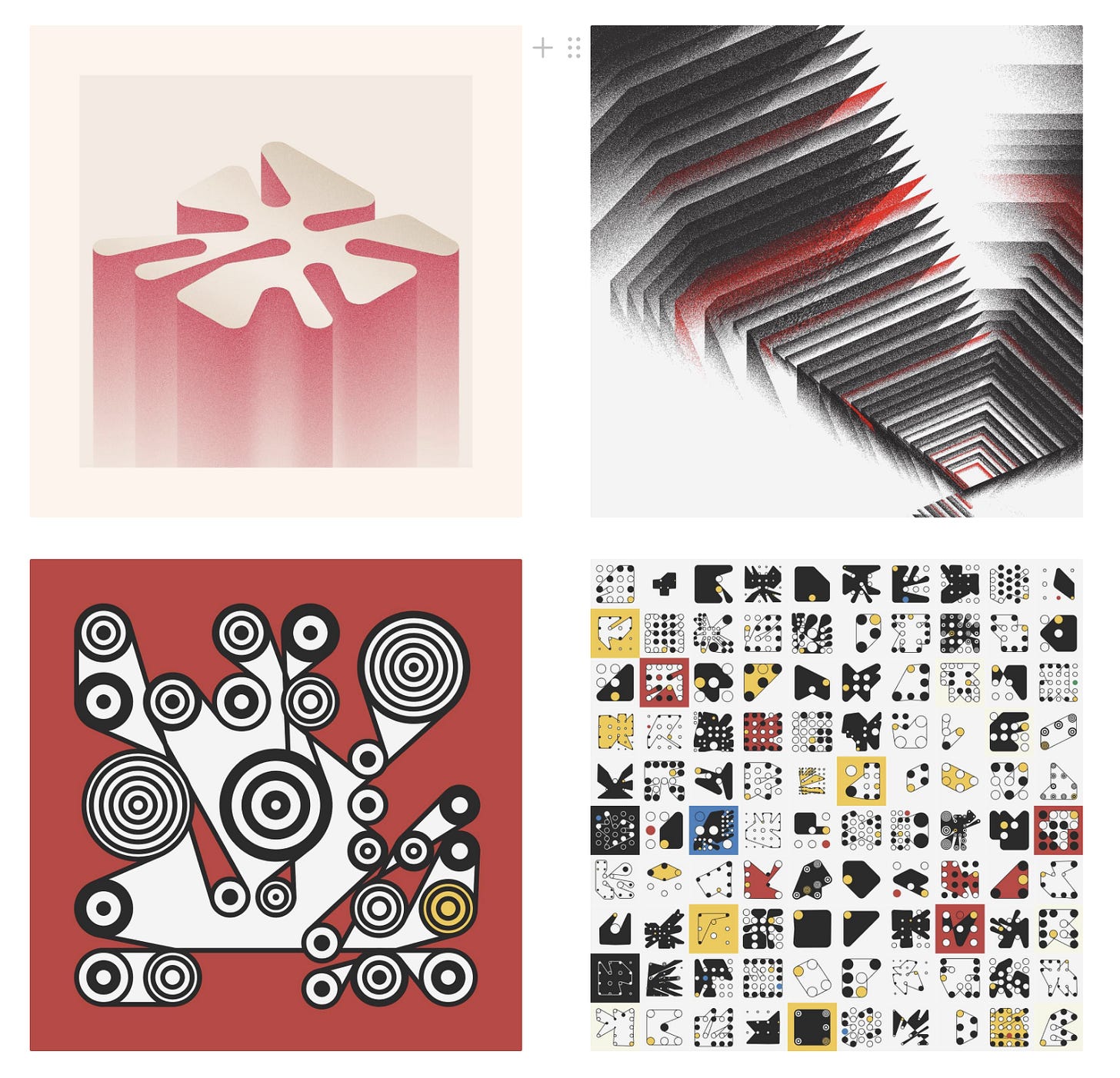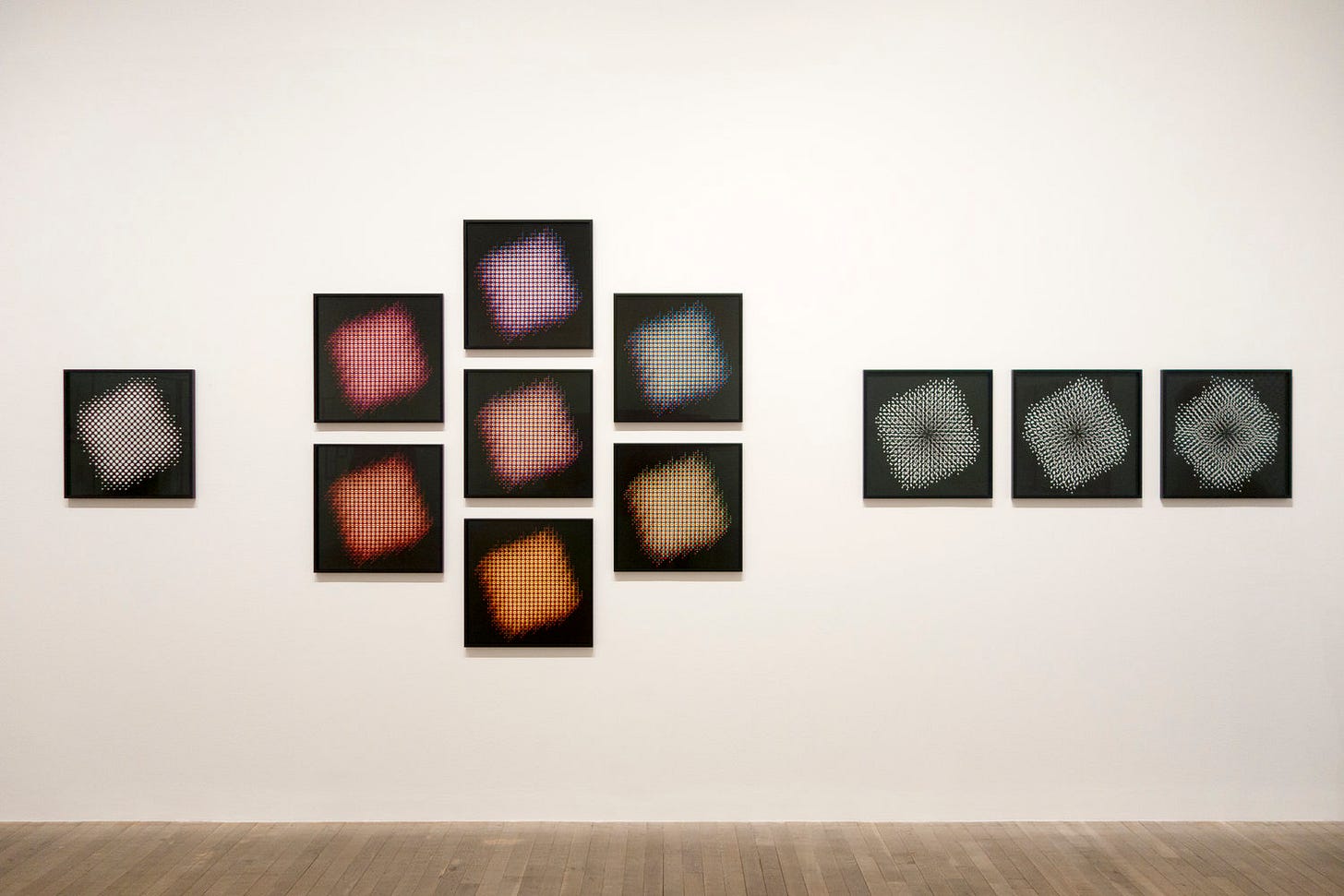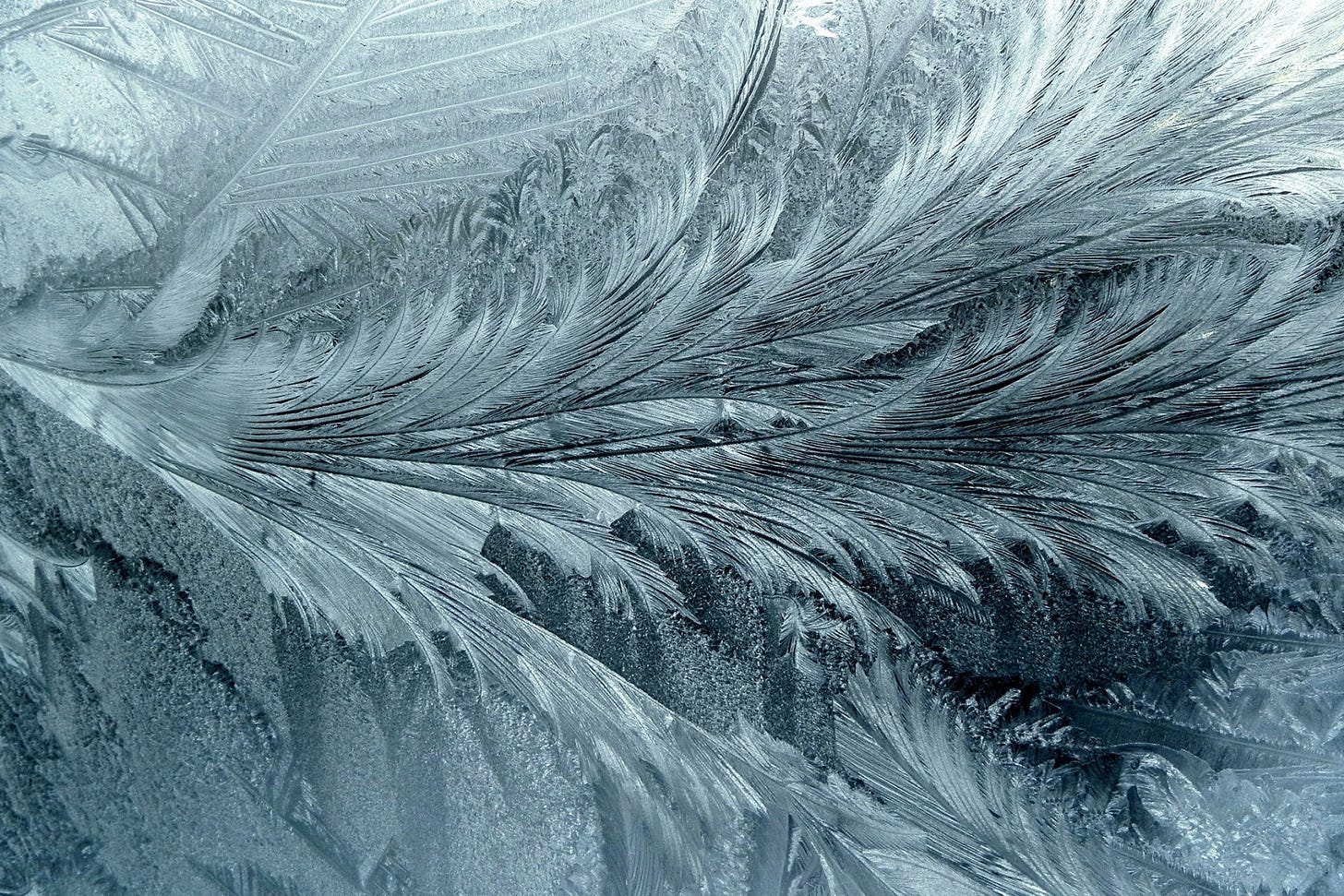Autonomous Artistry and the Physical
Generative Arts Weekly #017
Website | Patreon | Instagram | Youtube | Behance | Twitter | BuyMeACoffee
“A work of art which did not begin in emotion is not art." ― Paul Cezanne
One of the things that I hope we continue to remember as "autonomous art" (i.e., currently GANs and generative artistic systems) becomes more apparent in the coming decade. Let's not forget what makes art and the aesthetic beauty. The process.
You might say, GANs can't be considered autonomous art since a training set has been using to "learn" the style of the system of images. And I agree! However, there are two things I'd consider with that statement.
First, what am I but a database of many inspirations from which I pull that create ideas? We are essentially a neural engine whose stored inspiration has 1000's of models in place, which end up becoming our intuition. So in one sense, there isn't a real "genuine inspiration." We are constrained to our reality and what we experience. Outside of that, the unknown is but a blank slate.
We don't know what we don't know...
There will be a point in which many GANs are developed to start seeing ensemble GANs. Or many GANs use to inform one piece of artwork. As they learn each other, the summarized weights could very well learn or at least mimic inspiration.
I would liken it to the seven archetypes of storytelling. A compelling story will have specific characteristics on which all levels are based. Yes, there is a combinatorial factor that almost leads to infinite combinations to create such a great story.
But what if there is a pattern out there in what makes great art that our meat computers can't compute, but silicon can?
We know it can generally work with human intervention if you haven't seen the CG that is created in movies these days, such as the CG model of Peter Cushing in the last two episodes of Star Wars.
We know that it is likely our computers will be able to generate models that can take on any style or characteristic at some point very soon.
Computation will continue to become more advanced and better understand the world only due to the shifting understanding of mathematics. It can sift through a ton of data and generate its intuition quicker than our meat calculators can.
An example of this is one of the exciting projects currently going on at Wolfram (creators of Mathematica, Wolfram Alpha, Wolfram Language). The physics project is a project to search for a complete representation of our universe using a computational method. Instead of cramming discoveries into classical physics, their approach is to create a language of an entire system of physics. Computation will slowly take the rigor of mathematics and redefines how things are understood and calculated.
At this point, it may sound a little cold. Computers will rule the earth! But we are far off from that at this point; it could go quick (i.e., a couple of years), or it can take decades and centuries till we have made progress needed to get there.
The limiting factors are:
our reaction toward the technology (think Luddite)
technical skill/motivation/innovation (when things are too good, we sometimes take the easy road) (i.e., look at global warming pushback)
letting our animal instincts take over and ruin ourselves ( based on history, is probably the more likely scenario)
fear
But eventually, unless science brings a curveball into the mix (which it always does to an extent), we will see autonomous art become a reality.
So let's keep on working on simple skills. A brush, a pen are fantastic pieces of technology that continue to inspire even today as we generate visuals that make us think.
Btw, if you haven't watch Blown Away on Netflix, please do. Talk about a beautiful "physical" art form that gives me so many chills. Glass is such a beautiful material to see it being shaped into many fantastic pieces. .. I can't recommend it highly enough!
Inspirations
📸 Generative Graphics
Dmitri Cherniak - Ringers
Check out Dmitri Cherniak in an interview of his project "Ringers" as he discusses his work and inspiration for the pieces featured on Artblocks.io. You can also check out his work on his Instagram or his website.
🖌️ Unconventional Media
Diffusion Limited Aggregation
Diffusion-Limited Aggregation (DLA) is one of the first algorithms I ever implemented following Daniel Shiffman's 34th Coding Challenge. It's one of the first digital morphogenesis algorithm that became well known and toyed with by geeky fractal digital artists in the 90's as computers then had just enough power to start simulating Brownian Motion.
🏛️ Exhibits / Installations
Generative Photography: An Interview of Gottfried Jager
As the photographic industry was the refuge of every would-be painter, every painter too ill-endowed or too lazy to complete his studies, this universal infatuation bore not only the mark of a blindness, an imbecility, but had also the air of a vengeance. I do not believe, or at least I do not wish to believe, in the absolute success of such a brutish conspiracy, in which, as in all others, one finds both fools and knaves; but I am convinced that the ill-applied developments of photography, like all other purely material developments of progress, have contributed much to the impoverishment of the French artistic genius, which is already so scarce.
🚤 Motion
Tissue - Experimenting with the Reaction-Diffusion
Some quick experiments with the updated Reaction-Diffusion simulation using the Tissue add-on.
Blender, an open-source 3D animation software package akin to 3D Max, Maya, and others, will be a good learn If you have any interest in 3D animation. I've done some work on it out of curiosity and found this plugin which was used in the previous reaction-diffusion tutorial, is a serious look into.
🔖 Articles and Tutorials
Quantum Computer Meets Pen Plotter
This is what I like the most about quantum computing. I love the analogue and fallible nature. A quantum computer is like tricking the fundamental building blocks of nature into doing a computation, and despite our best efforts, we will never be in complete control. There are theories and methods to mitigate noise, but regardless, probability and interference are fundamentally a part of quantum mechanics. And for near-term quantum devices, working with the noise is an unavoidable part of the process.
Interview w/ Generative Artist Kjetil Gold
All communities have identities built around core principles. I’ve learned over the last few years that the traditional art world tends to value, promote, and embrace scarcity, and as a result, often finds that there are not enough resources to go around. It is noteworthy to me that communities that promote abundance, sharing, and generosity, such as the generative art community, often find that they have all of the resources and support that they need and more.
The fractal nature of almost all things
Here’s a short activity: take a bowlful of dried rice, or, if your environment allows, sand. Pour it slowly onto the same spot. Watch as it builds into a pyramid. Continue to watch as the sides of that pyramid begin to avalanche. Notice how these avalanches continue to occur at the same frequency while you continue to pour.
A Primer on Bézier Curves
This is a free website/ebook dealing with both the maths and programming aspects of Bezier Curves, covering a wide range of topics relating to drawing and working with that curve that seems to pop up everywhere, from Photoshop paths to CSS easing functions to Font outline descriptions.
The following primer is an excellent way of understanding the use case of Bezier curves. It helps when you want to start creating your custom functions in your work or developing a new framework. Either way, it was great to study the material.
Courses
Music space: Getting Started with Max
The monthly workshops will have 4 sessions of 2 hours each. Participants will learn how to get started with interactive audio and MIDI, and discover the possibilities of the Max environment. They will learn how to manipulate audio, MIDI, virtual instruments, and program their own interactive canvas, and will learn from guided examples and live interactions with teachers and other participants.
Books
Fundamentals of Data Visualization
The book is meant as a guide to making visualizations that accurately reflect the data, tell a story, and look professional. It has grown out of my experience of working with students and postdocs in my laboratory on thousands of data visualizations. Over the years, I have noticed that the same issues arise over and over. I have attempted to collect my accumulated knowledge from these interactions in the form of this book.
It’s not specific to generative art, but it has an excellent foundational element to what makes a visual appealing.












